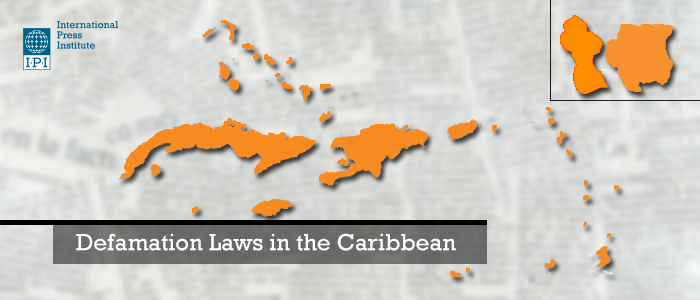
Despite their diversity, the independent states that comprise the Caribbean have one thing in common: criminal defamation laws. From the Bahamas to Guyana, journalists still risk being sent to prison – for up to five years in some cases – for exercising their right to investigate and report on matters of public interest. Most criminal defamation laws in the Caribbean are relics of the colonial era, with legislation in some cases dating back to the nineteenth century.
In 2012, alarmed at the threat to press freedom IPI and the Association of Caribbean MediaWorkers launched a joint campaign to repeal criminal defamation laws in the Caribbean.
Our successes
Since 2012, our campaign has led to the repeal of criminal defamation in three Caribbean countries:
Grenada (2012)
Jamaica (2013)
Antigua and Barbuda (2015)
In addition, both Jamaica and Antigua and Barbuda have overhauled their civil defamation laws to better meet international standards.
Two additional countries have made steps in the right direction. In Trinidad and Tobago, legislators partially repealed criminal defamation following IPI and ACM’s advocacy work by abolishing the offence of malicious defamatory libel (2014). In the Dominican Republic, legislators removed imprisonment as a punishment for defamation and insult from the criminal code (2014); however, the Dominican Republic Constitutional Court invalidated the new criminal code in 2015 on unrelated grounds. In February 2016, the Constitutional Court struck down provisions of the country’s press law that criminalised defamation and insult toward government bodies and public officials.


